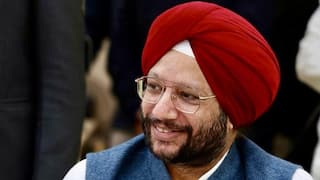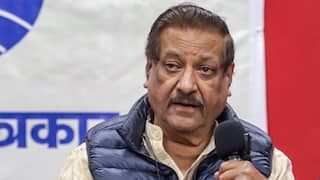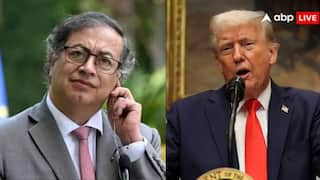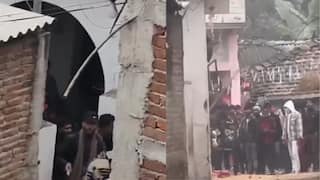Domestic Distraction Or Necessary Tough Stand? How India-Canada Row Has Played Out In Canadian Media
India-Canada ties have hit their nadir over the latter’s allegations about Indian government officials spearheading a campaign of violence and extortion against ‘Canadian citizens’.

For some, it is a carefully orchestrated ploy to eclipse Canadian Prime Minister Justin Trudeau’s “domestic troubles”, while others see it as a bona fide stance against “state terrorism”. Opinions on the matter may span a vast spectrum, but the India-Canada row is playing out in the Canadian media with as much intensity as in India.
India-Canada ties — fraught over what is seen by New Delhi as Ottawa’s soft corner for Sikh radicals based in Canada — have hit their nadir over the latter’s allegations about Indian government officials spearheading a campaign of violence and extortion against “Canadian citizens”. Canada went public with its allegations last year in the aftermath of the killing of Sikh radical Hardeep Singh Nijjar in British Columbia.
India has denied the allegations, and accused the Trudeau government of pandering to the anti-India separatist agenda for political gains. Amid the intensifying row, tit-for-tat diplomatic expulsions by the two sides have further heightened tensions.
Here is a round-up of how the issue has been dealt with in the editorial and opinion sections of prominent Canadian media outlets:
ALSO READ | PM Modi, Trudeau Engage In ‘Brief Exchange’ In Laos Amid ‘Tense’ India-Canada Relations
The Globe And Mail
The Globe And Mail columnist Andrew Coyne accused India of “state terrorism” in a piece headlined ‘This is not a diplomatic spat: it’s state terrorism, and Canada is right to call it out’. He writes, “The notion that this is just a ‘diplomatic spat’, or that Canada and not India is responsible for the ‘escalation of tensions’ – as if the fault were not India’s, for having carried out this unprovoked attack on a supposed ally, but Canada’s for objecting – is one of the grimmer jokes to emerge from this affair.”
National Post
In a piece titled ‘Liberal MPs promote Air India bombing conspiracy theory’, Christian Leuprecht, professor at Royal Military College and Queen’s University, and Joe Adam George, a national security analyst on South Asia and Middle East affairs, say “Trudeau Liberals have long pandered to identity politics for their electoral fortunes”.
“The Khalistan cause remains their long-time trump card to woo Sikh votes. The Sikh diaspora wields significant influence in as many as 23 ridings across urban Canada, making it an important vote bank for any party seeking to form government,” they add.
In another comment piece headlined ‘Liberals play diaspora politics to hide their failure to address foreign interference’, Canadian public affairs commentator Tasha Kheiriddin suggests the timing of Canada’s allegations is suspect.
“On the surface, they provide a great distraction from the weekend’s attempted internal coup on the prime minister. The story of a revolt among Liberal MPs, thirty of which apparently signed a letter asking the PM to quit, hit the news cycle on Saturday. Then, presto: on Monday, the RCMP (Royal Canadian Mounted Police) dropped its bombshell, allowing the PM to take to the airwaves and sound all grave and solemn and prime-minister like, defending Canadian sovereignty,” she says, also noting that the allegations came days after a panel on foreign interference “heard from Public Safety Minister Bill Blair that his office sat for 54 days on a warrant to investigate Ontario Liberal MPP Michael Chan, accused of doing China’s bidding in Canada”.
“And here’s the kicker: who is responsible for ensuring that the RCMP is ‘effective, accountable and addresses the government’s priorities?’ You guessed it: Bill Blair, the minister of public safety,” she adds.
The Toronto Star
In a piece headlined ‘India wants to send a message to the world — and is using Canada to do it’, political columnist Martin Regg Cohn says India “today” is a “grand illusion and democratic delusion”.
He says the “Gandhian vision” of India’s “birth has been superseded by the repressive rule of its current prime minister, Narendra Modi”.
According to him, where India “contemptuously” dismisses “Canadian requests for cooperation” in the Nijjar matter, it “sucks up obsequiously to American allegations of misconduct on its soil”, referring to the US investigation into an alleged plot to murder Sikh radical Gurpatwant Singh Pannun.
“India is playing the game, because it dare not antagonise America. Canada, however, is expendable — a middle power with no military clout, as desperate as any other Western country to maintain commercial ties with India — which is why Modi is making an example of us,” he writes, adding that China had made a similar attempt with Canada.
Related Video
Uttarakhand News: Winter Chill Grips North India; Kedarnath Dham Covered in Snow





































